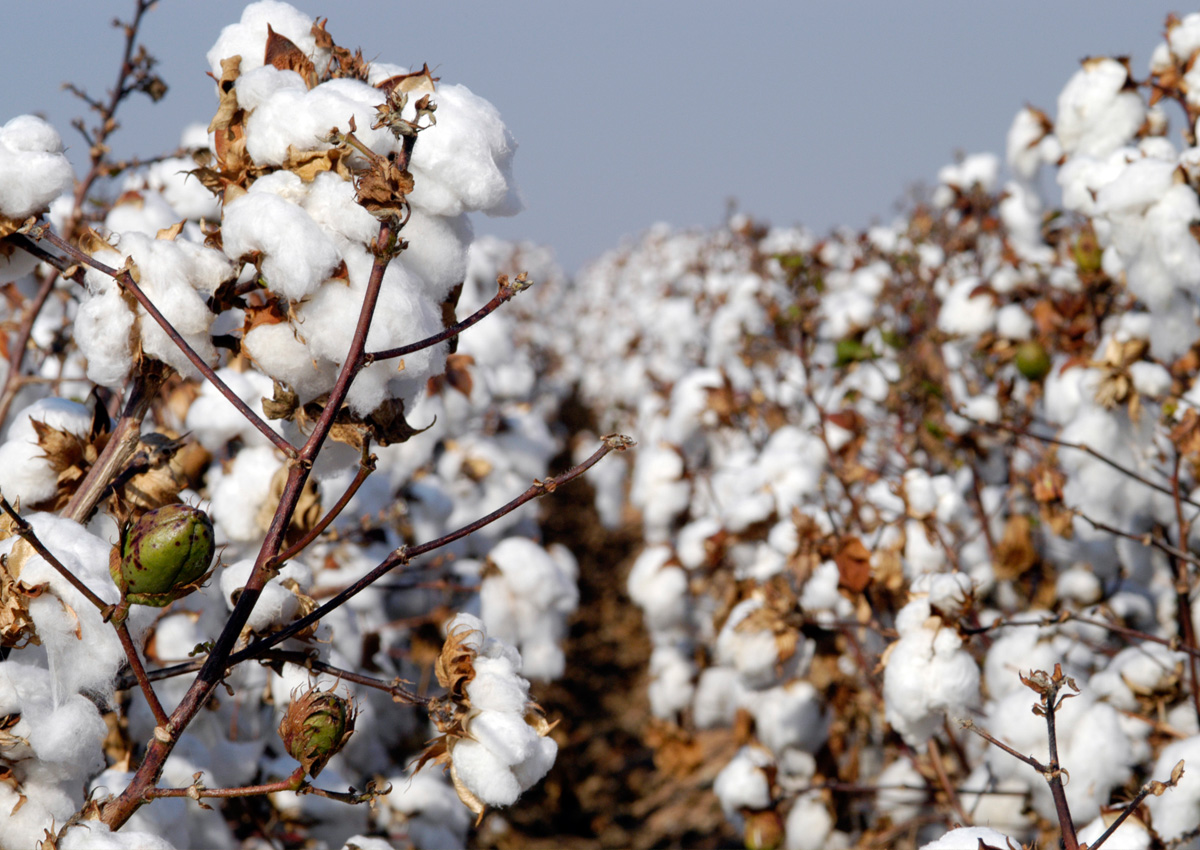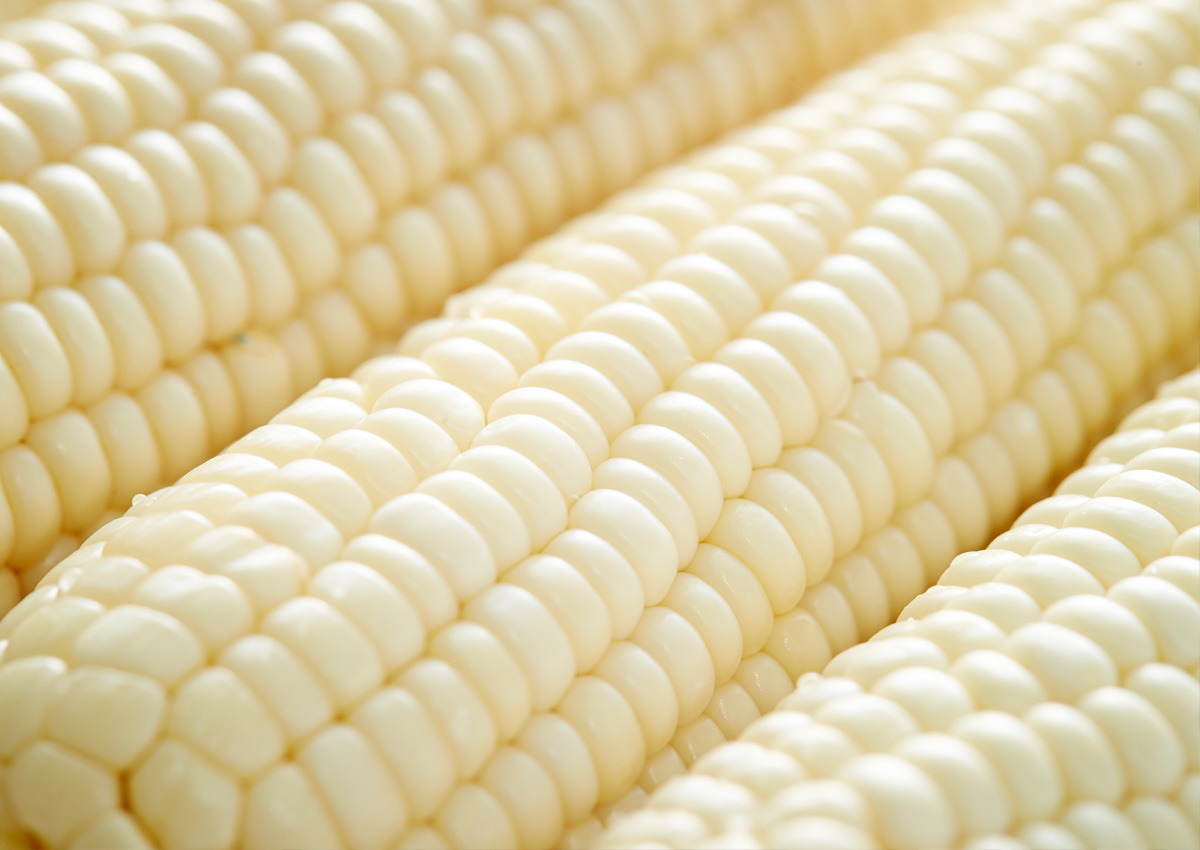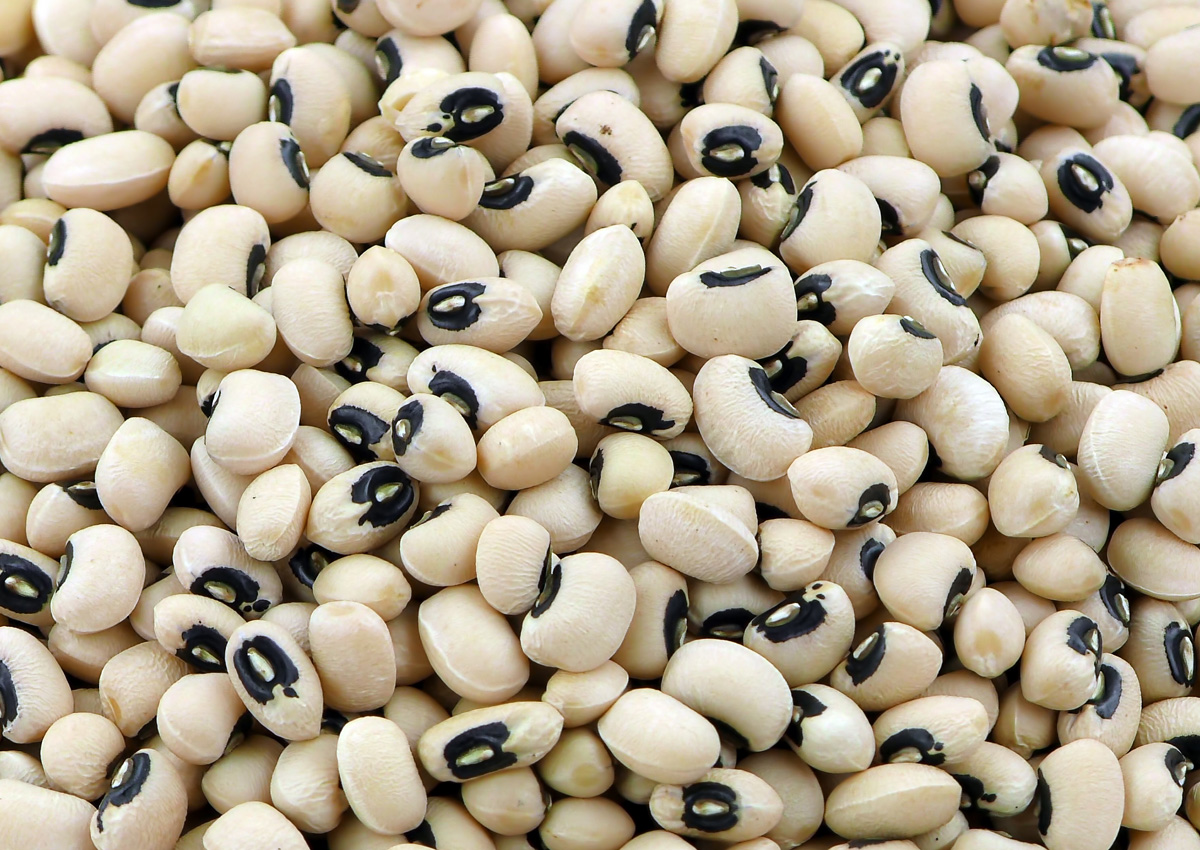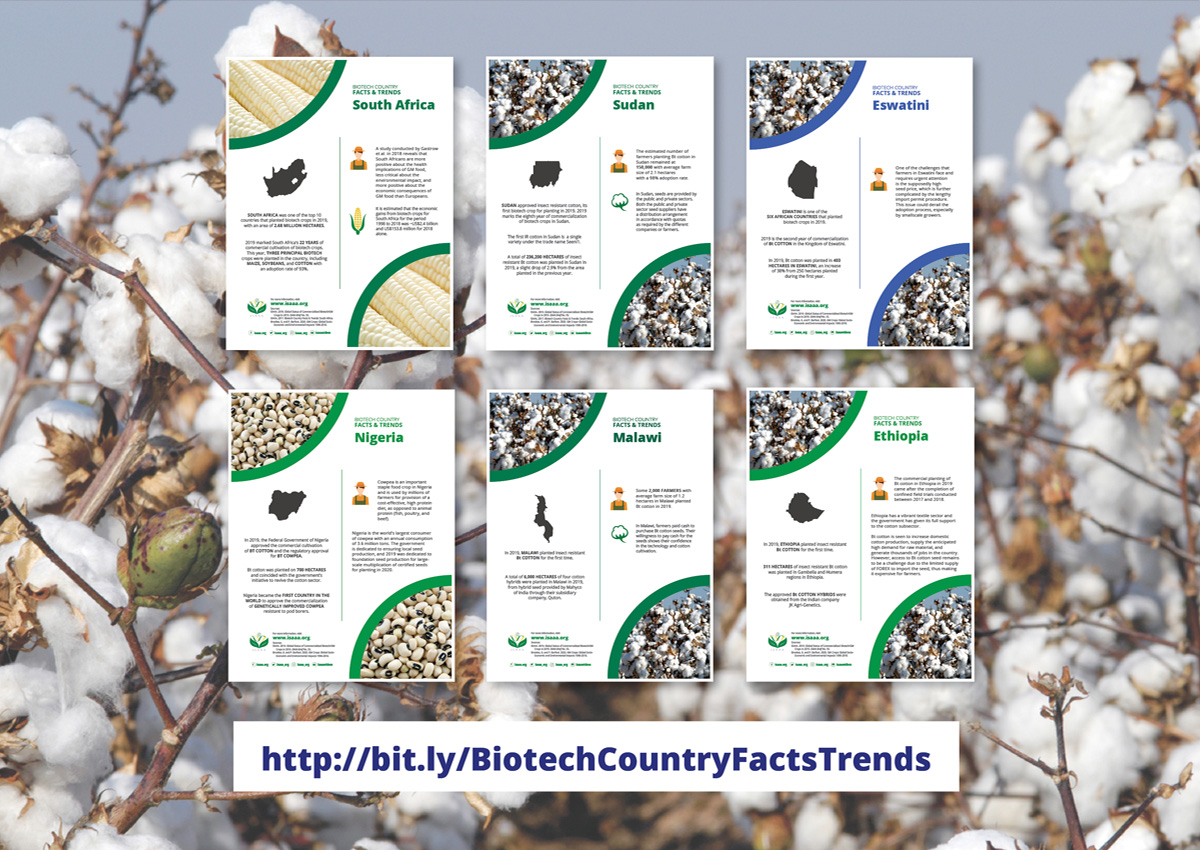Africa's Progress in Biotech Crop Adoption Contributes to Food Security and Uplifts Farmers' Lives
| |

As the number of developing countries planting biotech crops increased through the years, only one country from Africa adopted such crops for a long time. For 10 years since 1998, South Africa was the only African country planting biotech crops, beginning with insect resistant cotton, followed by biotech maize and soybeans. In 2008, Burkina Faso planted biotech cotton and Egypt grew biotech maize for the first time. However, both countries stopped planting biotech crops after only a few years. In 2012, Sudan planted Bt cotton for the first time, and Eswatini became the fifth African country to plant a biotech crop when it started planting Bt cotton in 2018.
In 2019, the number of countries planting biotech crops in Africa doubled. The three countries South Africa, Sudan, and Eswatini were joined by three more countries—Malawi, Nigeria, and Ethiopia. The six countries planted a total of 2.9 million hectares of four biotech crops including maize, soybeans, cotton, and cowpea. Also in 2019, Kenya announced the commercialization of biotech cotton at the end of the year, with plantings to start in 2020. Aside from these developments, significant progress in biotech crop research, regulation, and acceptance has been evident in Mozambique, Niger, Ghana, Rwanda, and Zambia. In total, seven African countries have the necessary biosafety approval to plant biotech crops, with three countries planting Bt cotton for the first time.

South Africa is the eighth largest producer of biotech crops in the world in 2019, marking its 22nd year of commercial cultivation of biotech crops. South Africa planted 2.68 million hectares of three principal crops biotech maize, biotech soybeans, and biotech cotton. Maize is the main field crop in South Africa and is used for both human consumption (white maize) and animal feed (yellow maize). It is estimated that 84.3% of South Africa's total maize area is planted to biotech maize. Also in 2019, the adoption rate of biotech soybeans in South Africa remained at 95%, and biotech cotton at 100%. The economic gains from biotech crops for South Africa from 1998 to 2018 was ~US$2.4 billion and US$153.8 million for 2018 alone.
Sudan, on its eighth year of planting biotech cotton in 2019, grew a total of 236,200 hectares of insect resistant cotton with an adoption rate of 98%. The estimated number of farmers remained at 150,000 with an average farm size of 2.1 hectares.
In its second year of planting Bt cotton, the Kingdom of Eswatini recorded a 38% increase in Bt cotton area from 250 hectares in 2018 to 403 hectares in 2019.
The three new countries that planted biotech crops in 2019 Malawi, Nigeria, and Ethiopia all planted Bt cotton. In Malawi, 6,000 hectares of Bt cotton were planted by close to 2,000 farmers. Farmers in the Gambella and Humera regions of Ethiopia planted 311 hectares of Bt cotton. In Nigeria, 700 hectares of Bt cotton were planted. Aside from Bt cotton, Nigeria made another landmark approval for Bt cowpea in 2019.

The Federal Government of Nigeria approved the commercialization of the biotech cowpea variety resistant to pod borers. This development placed Nigeria as the first country in the world to commercialize genetically improved cowpea. The new variety, named SAMPEA 20-T, was developed by scientists from the Institute of Agricultural Research, Ahmadu Bello University, Zaria in collaboration with partners under the coordination of the African Agricultural Technology Foundation. Cowpea is an important staple food crop in Nigeria and is planted by millions of farmers to provide a cost-effective, high protein diet, as opposed to animal protein (fish, poultry, and beef). The adoption of Bt cowpea will help improve the country’s foreign exchange which has a 500,000 tons worth of cowpea deficit that has to be imported due to low productivity caused by pests.
More countries in Africa are moving forward from conducting confined field trials to the environmental release phase. In Mozambique, researchers have sought approval for insect resistant and drought tolerant maize. Cassava researchers in Kenya submitted an application seeking approval for cassava brown streak disease (CBSD) resistant Cassava Line 4046. Increasing awareness, acceptance, and adoption of biotech crops in the African continent in 2019 has been a critical step in the quest for food sustainability in the region, considered to have the biggest potential to benefit from biotech crop adoption.

To learn more about the six countries planting biotech crops in Africa, download the new and updated Biotech Country Facts and Trends from the ISAAA website.
Sources:
- ISAAA Brief No. 8 Global Review of Commercialized Transgenic Crops: 1998
- ISAAA Brief No. 55 Global Status of Commercialized Biotech/GM Crops: 2019
- GM Crops: Global Socio-Economic and Environmental Impacts 1996-2018
| Newer Post | Archive | Older Post |
Science Speaks is ISAAA Inc.'s official blog. Weekly blog articles, authored by ISAAA writers, partners, and invited contributors, aim to help share, disseminate, and promote scientific knowledge and its vital role in achieving global agricultural sustainability and development. Your support to Science Speaks will help us achieve this goal. You can help us by donating as little as $10.

